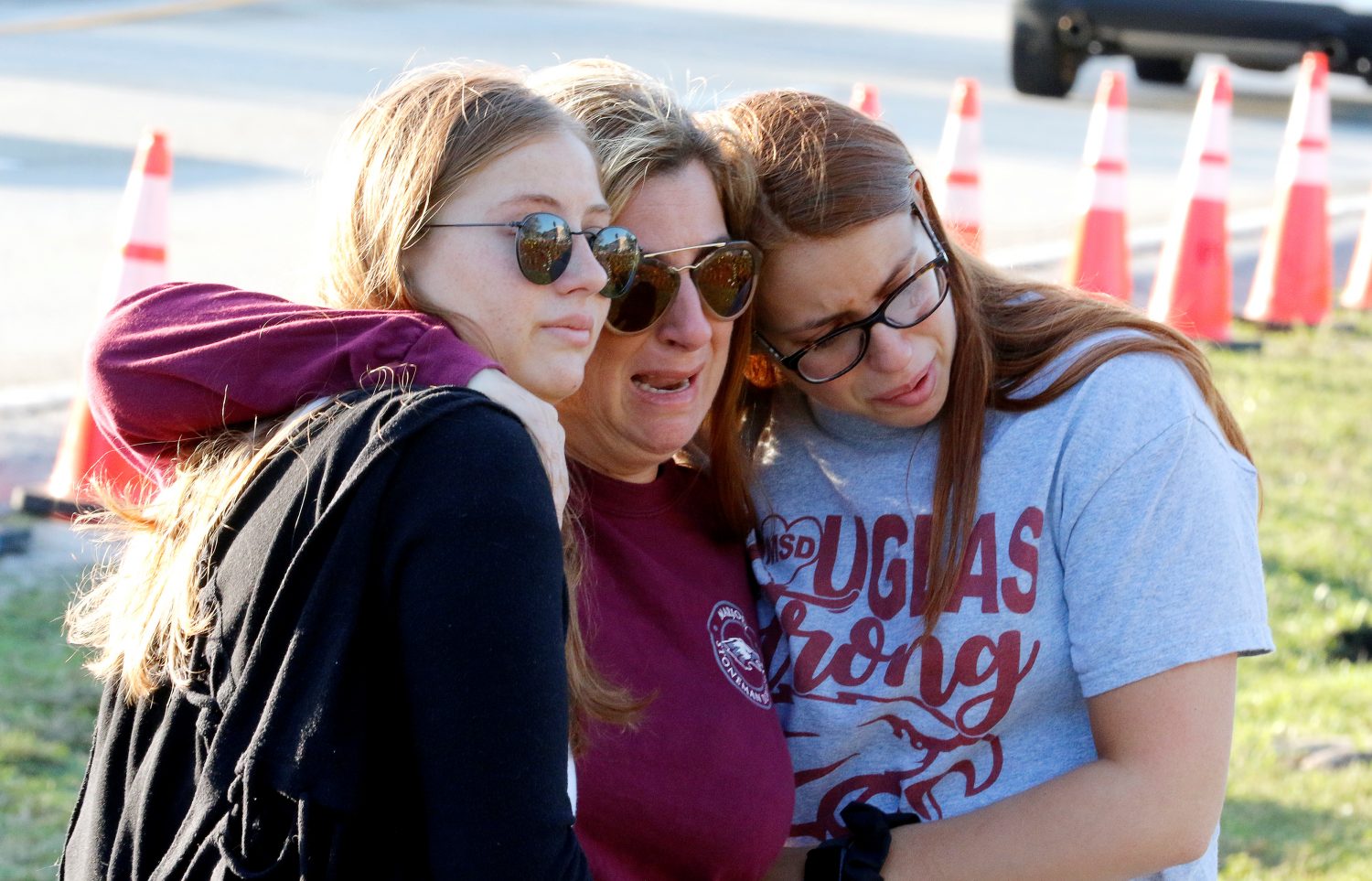
By Zachary Fagenson
PARKLAND, Fla. (Reuters) – One year after the Valentine’s Day massacre inside a Florida school, students and families leading a nationwide push for school and gun safety paused on Thursday to mark the anniversary of the deadliest U.S. high school shooting.
School buses brought only a handful of students to a shortened class day at Marjory Stoneman Douglas High School in Parkland, Florida, where a former student with an assault gun killed 17 people on Feb. 14, 2018.
A moment of silence and community service activities took place at local schools, with the city of Parkland set to host an evening vigil at a park where a similar event the day after the shooting showcased angry grief and spurred calls for action.
Leaders of March for Our Lives, a national student movement formed in the aftermath of the Parkland tragedy to fight gun violence, said on Twitter that they were “going dark” for four days.
“During that time, if past trends continue, around 400 people in the U.S. will likely be shot to death,” they said.
From Washington to Florida’s state capital Tallahassee, elected leaders from both parties vowed to keep working to prevent another catastrophe. Republican President Donald Trump said on Twitter that the anniversary was a time to “recommit to ensuring the safety of all Americans, especially our nation’s children.”
Gun violence represents an epidemic that claimed the lives of nearly 40,000 Americans in 2017. Of those deaths, the U.S. Centers for Disease Control and Prevention said in December that 60 percent were self-inflicted.
“Why have we not been able to stop this from happening?” asked Jared Moskowitz, a former Democratic state legislator from the Parkland area, now heading the Florida Division of Emergency Management. He spoke alongside a 35-foot memorial to the shooting victims erected at a public arts display in Coral Springs, near Parkland.
A former student, Nikolas Cruz, is accused of opening fire with an AR-style semi-automatic rifle inside a freshman classroom building. He has offered to plead guilty if prosecutors do not seek the death penalty, but no such agreement has been reached.
Many families of the dead and many student activists prefer not to mention his name.
Students who did not want to attend school on Thursday were excused. Broward County Public Schools Superintendent Robert Runcie noted that many struggle with post-traumatic stress.
“For some it is almost as if the incident occurred yesterday. It’s raw and fresh for people,” he told reporters outside the high school, which was guarded by police officers.
For parent Fred Guttenberg, the year since the shooting already has seen his first Father’s Day, birthday and other emotional milestones without his 14-year-old daughter, Jaime, who was killed in a school hallway.
On the one-year mark of Jaime’s death, he was going to visit her at the cemetery. In a social media post, he noted that one year ago he had sent two children to school – and only one came home.
“I am forever haunted by my memory of that morning, rushing my kids out the door rather than getting one last minute. Did I say I love you?” he said on Twitter.
(Additional reporting and writing by Letitia Stein; Editing by Jonathan Oatis and Tom Brown)











